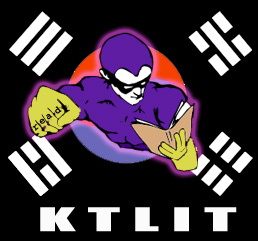 It’s always reassuring to me when Korean scholars seem to agree with me^^, and then it brings out the contrarian in me.
It’s always reassuring to me when Korean scholars seem to agree with me^^, and then it brings out the contrarian in me.
Thus it is with this article in the Korea Times, ‘Universality’ holds key to develop K-literature by professor Joo Yoong-hee a professor of classic Korean literature at the Academy of Korean Studies.
Joo argues that literature, not K-pop and other aspects of hallyu, is most reflective of Korean culture, a claim that seems sensible on the face of it, since the literature goes back thousands of years, and reflects animist, Buddhist, Confucian, and modern influences as well as reflecting the historical eras (from the kingdoms to Garusogil) Korea has developed through.
Joo’s money quote is:
Over the past few decades, translation funding has given preference to works that accentuate themes uniquely authentic to Korean culture and life experience. Toward the purpose of introducing Korean culture through literature, “Koreanness” has been given priority over other expressions of the human condition in the field of “literature.” This specified focus sometimes functions as an obstacle to enlarging the number of overseas readers, however, as the cultural singularity reflected through Korean literature often fails in achieving universal accessibility.
And I completely agree, with one codicil – that is that ‘universal’ literature should also be seen as a ‘gateway’ drug to ‘Koreanness.’ Not all readers will read a ‘universal’ work of Korean literature (Joo names Shin Kyung-sook) and then go on to fully explore Korean culture, but everyone does have to start somewhere, and the more people who get started on this journey, the more who will finally finish it.
So when professor Joo says:
Universality should be an important criterion in the decision-making process for the kinds of literature being selected to receive funding for translation. Cultural distinctiveness and authenticity may be important criteria to identify certain literature with Korea; however, the more literature is particular to Korean culture, the more foreign readers may experience difficulty in being sympathetic to the characters and broader themes expressed through the literature. Korean literature is not promotional material of Korean culture.
I think he goes half-a-step too far. His first point is good, that universality should be important, but I would not go so far as to say that, “literature is not promotional material of Korean culture.” Still, the fact that a market-based approach like this is being discussed in a public newspaper is a measure of how far the discussion has come from the 1980s when collections could begin by claiming that Korean culture is impenetrable and the translation is impossible.^^


